Camping Is A Mess. Here’s How To Fix Six Camping Cleaning Problems.
Perhaps you, a camping enthusiast, can relate to this scenario: You’ve returned to civilization, toted all your camping gear from the car into your home, taken a long, hot shower and are ready to unpack. So unpack you do! Only to discover that everything you brought on your trip to the wilderness smells like a campfire. Or is covered in mud.
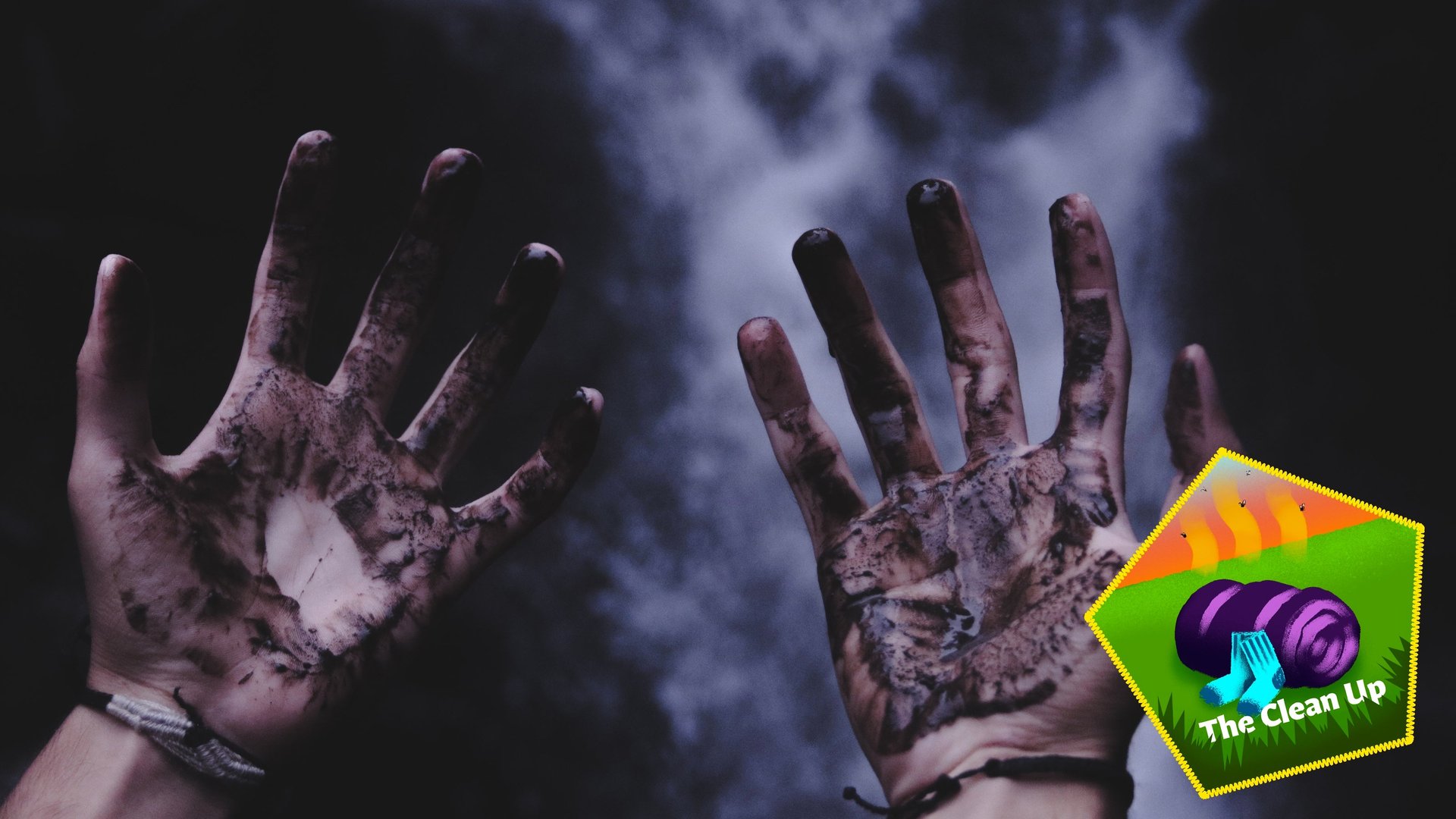
Perhaps you, a camping enthusiast, can relate to this scenario: You’ve returned to civilization, toted all your camping gear from the car into your home, taken a long, hot shower and are ready to unpack. So unpack you do! Only to discover that everything you brought on your trip to the wilderness smells like a campfire. Or is covered in mud.
Suggested Reading
These things will happen! But there are easy fixes to the most common camping gear messes, and here’s what they are.
Related Content
Camping Problem 1: Your Laundry Smells Like a Campfire
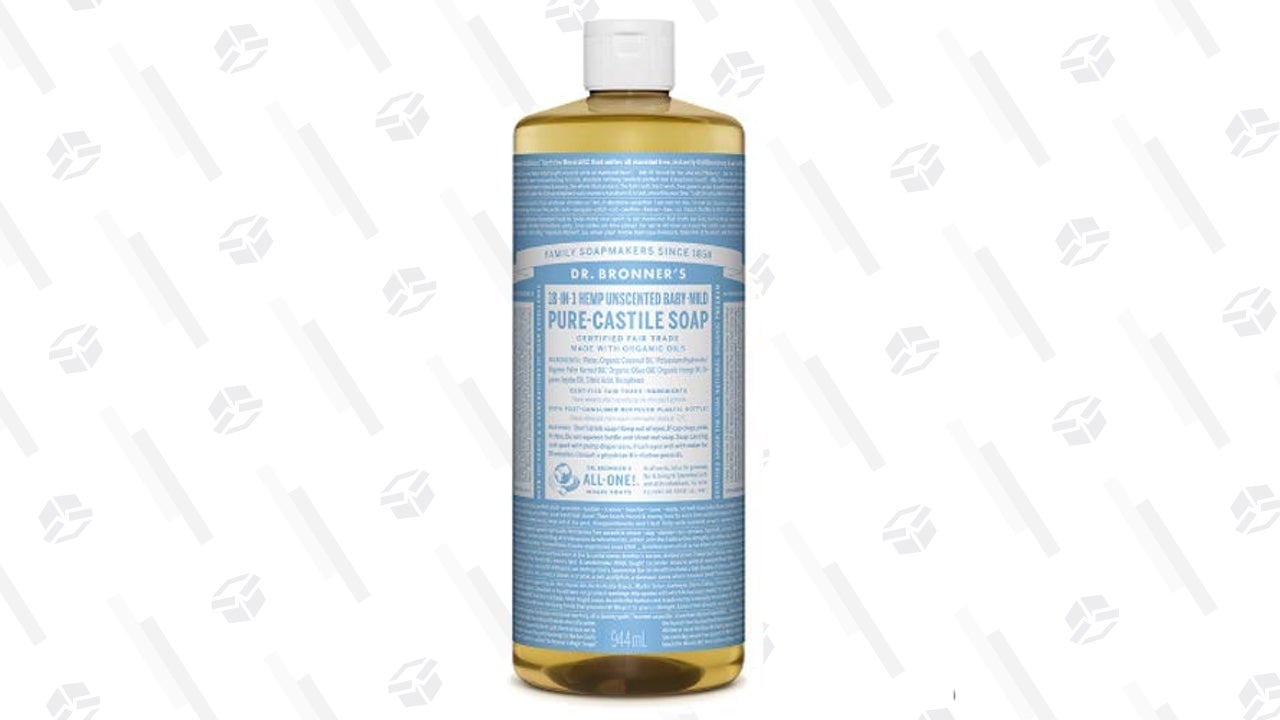
When clothes and towels take on an especially strong odor — like, say, the smell of smoke from a campfire — regular laundering alone often isn’t enough to fully eliminate odors. Enter an odor-eliminating detergent! Dr. Bronner’s is an excellent choice and, if you’re a camper, likely a product you already have. But if you don’t have Dr. Bronner’s, a sports detergent like Sport Suds or Tide Sport will also work to nuke strong odors in clothing. It’s best to wash very smelly gear in cold water, and either air dry or machine dry on a low- to medium-heat setting, since heat can amplify any lingering odors.
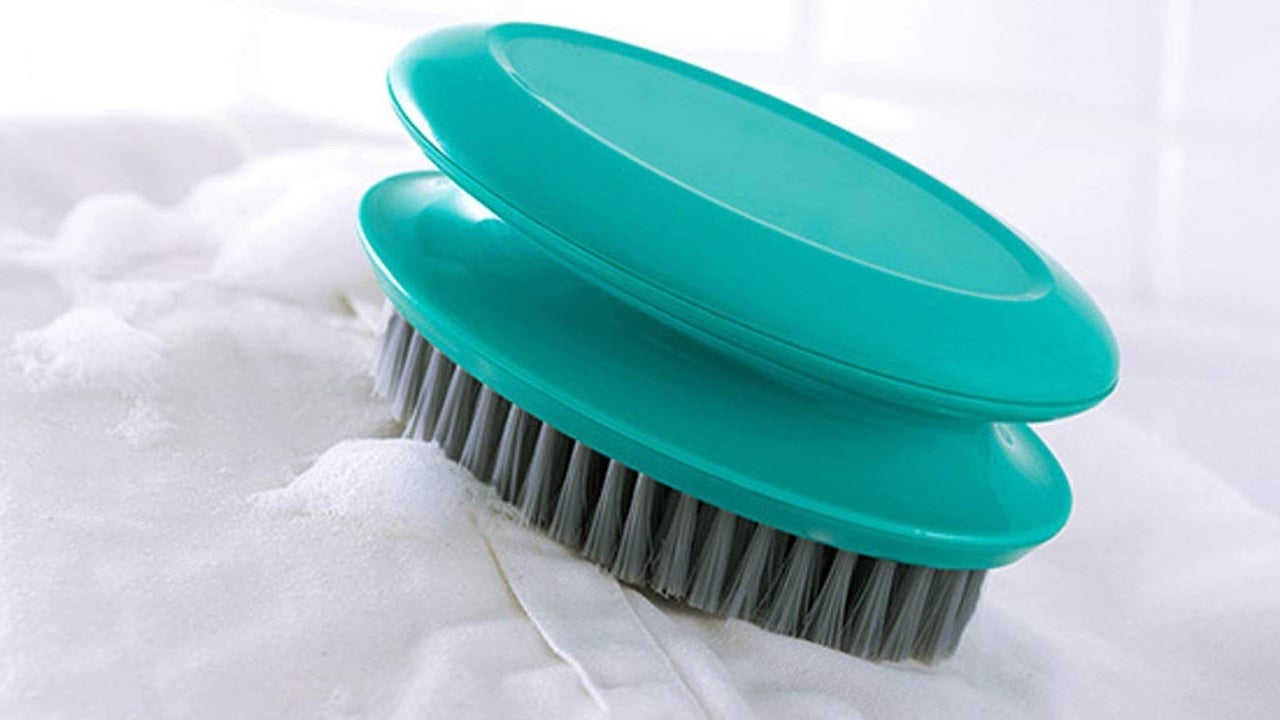
Camping Problem 2: Your Laundry Is Covered In Dirt and Mud
Two fun facts about dirt and mud! They are protein stains, and mud, at least, is one of the few stains that isn’t best treated immediately. Here’s why: If you try to add a liquid stain treatment to mud you’ll just create … more mud. Once it’s dry, however, and back to its dirt form, you can brush away quite a lot of it using a laundry brush (a nail brush will also work!)
Once you’ve brushed away as much dirt as possible, use an enzymatic stain pretreatment product like Zout or Krud Kutter Sports Stain Remover on clothing prior to laundering, which will help to break down and eliminate protein stains.
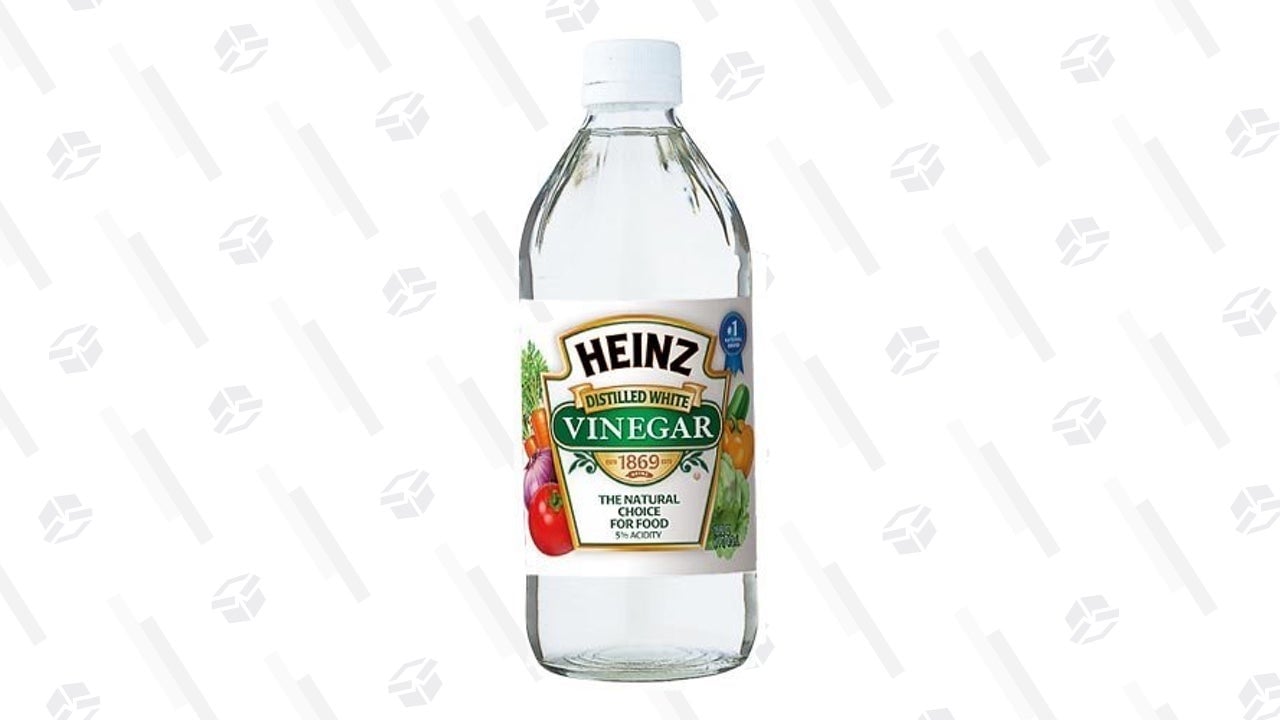
Camping Problem 3: Your Laundry Smells Mildewy
Sometimes you have wet clothes that you have to pack up before they have a chance to dry, that’s just a fact of camping life. A thing that can easily happen, and is also super easy to reverse, is that clothes can take on a strong mildewy smell when they’ve been balled up, wet, for a prolonged period of time. Here’s what you’re going to do when that happens: Add ½-1 cup of white vinegar to the wash along with your regular detergent. That’s all! When the clothes come out of the wash you might get a whiff of vinegar but when they dry, the pickle-y smell will dissipate.
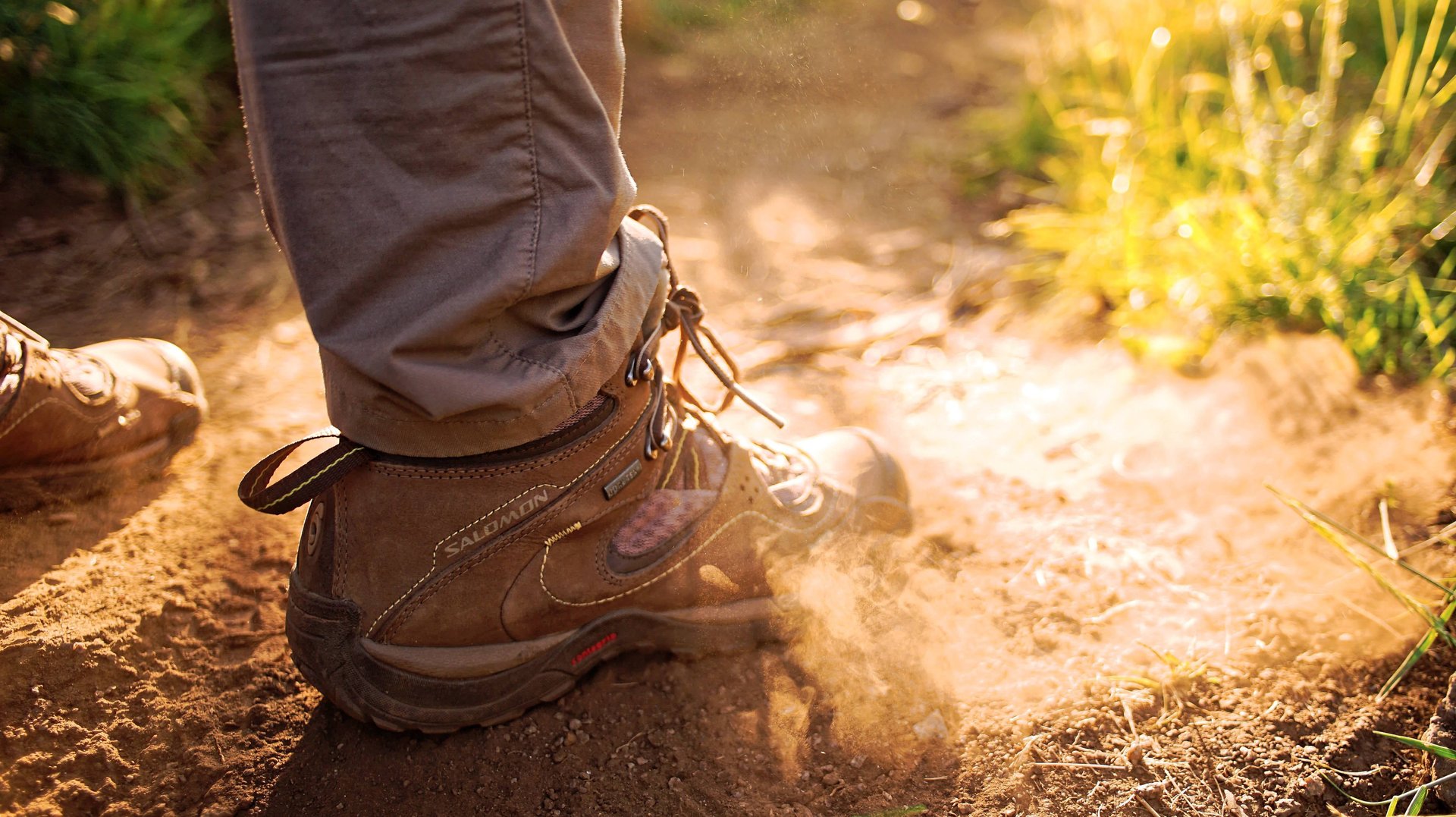
Camping Problem 4: Your Hiking Boots Are Destroyed
A solution to wrecked hiking boots in 4-easy steps.
Step 1: Let them dry;
Is there still a smell even after washing? Sure, you need an odor eliminating spray like Dr. Scholl’s Odor-X.
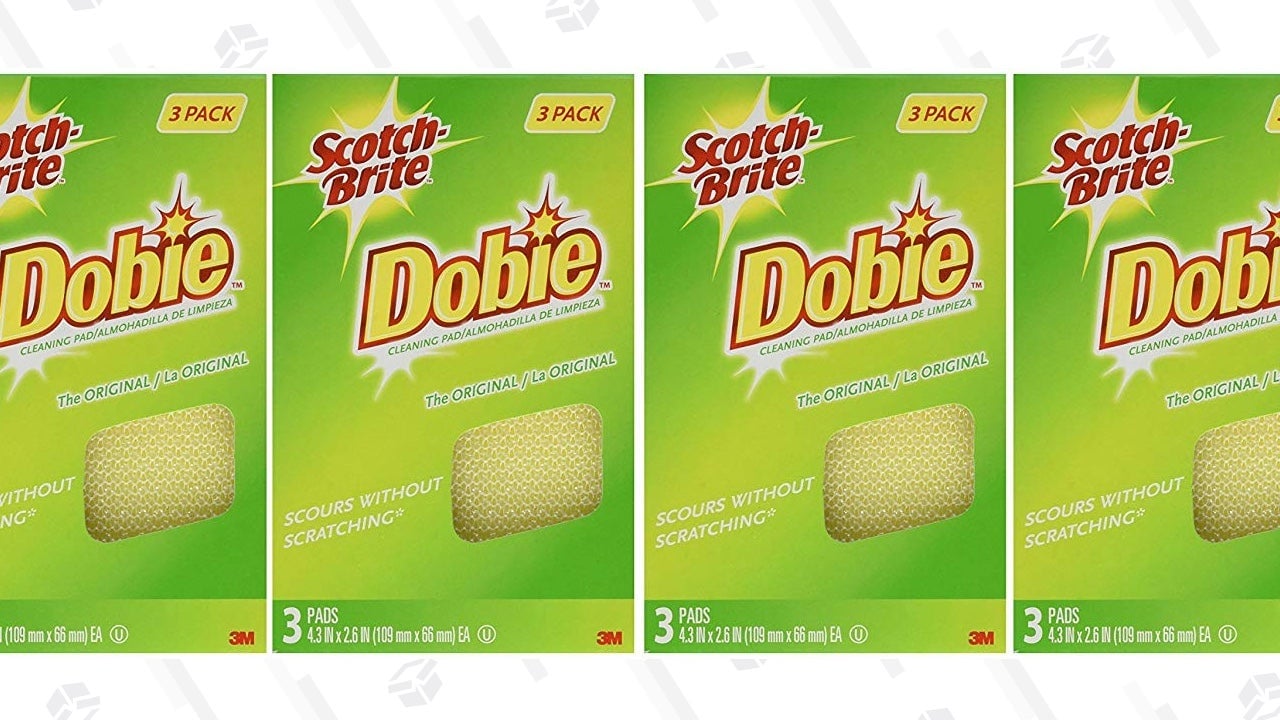
Camping Problem 5: Your Cookware Needs Some TLC
Washing the stuff you cook and eat with while camping poses some obvious challenges: A lack of running water, limited supplies, etc etc. Which means that, even if you’ve been doing dishes while in the woods, when you get home your gear may need a good going over to remove food residue or that sticky film that can develop.
For stuck-on food, our old friend the Dobie Pad is going to be more or less all you need to scrub it away, though using baking soda can also help the process. If a pot has gotten scorched, sprinkle baking soda all over the bottom, fill it about a third of the way up with water and bring it to a boil. Remove from the heat and let it cool long enough that you can put your hand in the water without scalding yourself, and use the Dobie to scrub away the loosened scorch.
If a sticky film is coating your camping cooking gear, try spraying it with a degreaser like ZEP Heavy-Duty Citrus Cleaner, then washing as usual either by hand in hot, soapy water, or in the dishwasher — provided it’s dishwasher safe, of course!
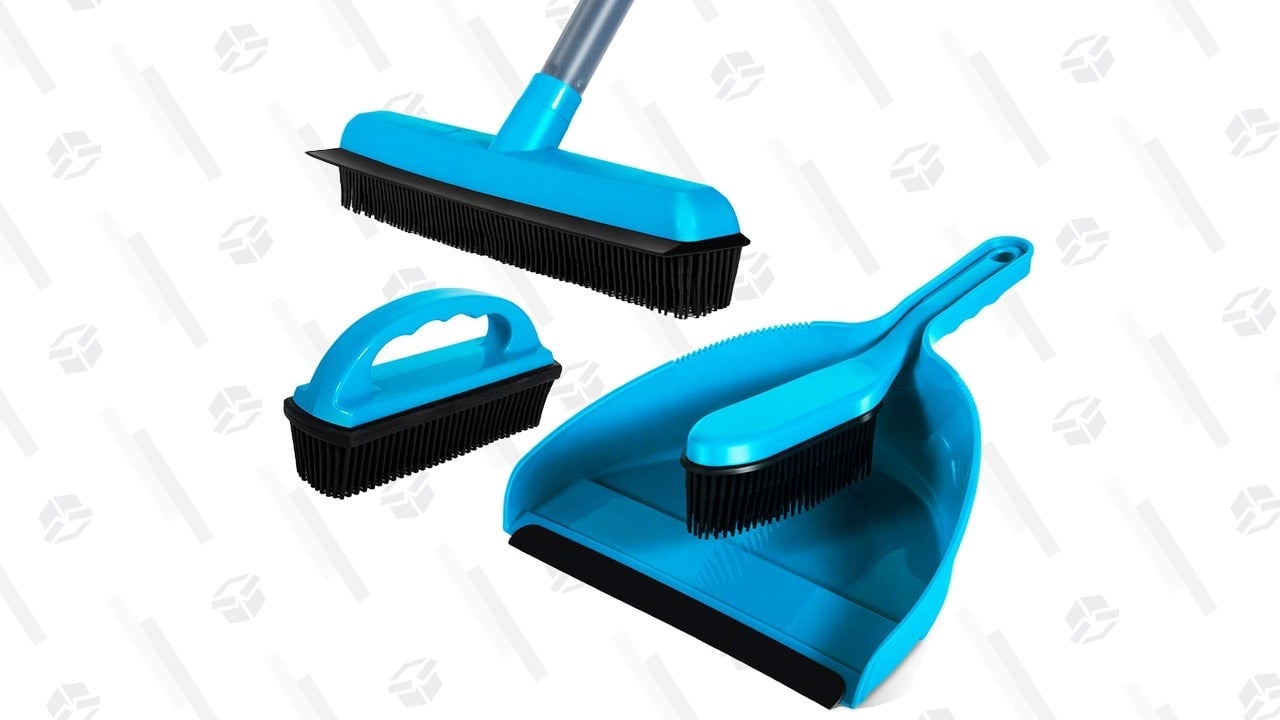
Camping Problem 6: Your Tent Needs To Be Cleaned
The actual most important thing you need to know about cleaning a tent is that before you collapse the tent and put it away, it needs to be BONE DRY. Putting a tent in storage with any lingering moisture will lead to mold and mildew and then you’ll have to deep clean the thing and nobody wants that. So: Dry tents!
To clean a tent out, which you should do after every camping excursion, start by pitching it outdoors on a dry day (remember, water is the enemy here). Use a rubber broom to sweep out the interior of the tent (sticky pine needles and such won’t cling to rubber brooms in the way they will to a brush broom), paying special attention to the corners, and to brush away any debris that’s clinging to the exterior. If there is any lingering buildup of dirt or other foreign matter, use a solution of diluted dish soap and a sponge, rag or a nail brush to scrub it away. Then, let the tent dry thoroughly before collapsing and storing it.
